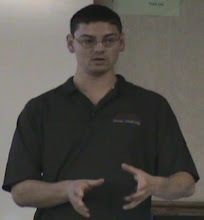
There's a recent story on Wired titled Tech That Never Took, within it is a short section on quantum computing (third one down here) by Tomas Hayden. It falls under the "tech that never took" category because the idea was introduced nearly three decades ago and our physical implementations are currently only a few handful of qubits at best. In the article Aaronson points out that the hard part of making a quantum computer is decoherence. When building a quantum computer you can think of this problem as basically being an unintended interaction with the environment which results in the state of the quantum computer not being maintained.
It is true that we've been working on it for a long time, but I disagree that quantum computing falls under the category of "tech that never took". It is taking us a long time because it is a really hard problem. Take another hard problem, developing the atomic bomb for example. It took a long time to create one, and we only did so when we did because of the huge amount of resources poured into the Manhattan Project. Another example is classical computers: much more than 3 decades elapsed between Charles Babbage's Difference Engine and the first real computers in the mid-twentieth century. My point is that just because it takes a long time to tackle a problem doesn't mean it will "never [take]".
Additionally we continue to make progress towards quantum computers, as I've outlined multiple times. My area is quantum software, not constructing the hardware, but I'd guess we're around a decade out from our first practical quantum computers. I'd also disagree with several of the other subjects listed in the article: nanotechnology, fusion power, personalized medicine, and self driving cars to name the most glaring ones to me. Given time, we've tackled some amazing problems, I don't see why these and quantum computing will be any different. Before 1903 there wasn't even powered flight by man, by 1969 we were landing people on the Moon.

No comments:
Post a Comment